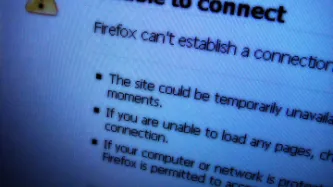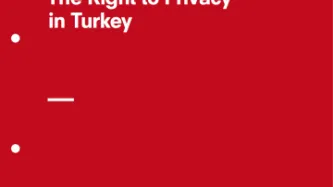Search
Content type: Long Read
Bad analogies about surveillance technology pervade newspaper reports, politicians’ speeches, and legal arguments. While it’s natural to want simple explanations to understand complex technology, it does us a disservice when governments, the media, or the courts mislead us through analogies that are inadequate. It is even worse if these analogies are used as a basis for policy change.
Privacy International’s legal challenge against GCHQ’s mass surveillance rests…
Content type: News & Analysis
In a disturbing move to broaden its mass surveillance powers, the government of Australia is pushing forward a bill that undermines fundamental rights, including the right to privacy. Disappointingly, this comes mere months after civil society and citizens alike expressed outrage over the Australian intelligence service’s offer to share deeply personal information about ordinary citizens with its Five Eyes partners.
The Bill, which amends the Australian…
Content type: News & Analysis
The publishing of materials from a support server belonging to surveillance-industry giant Gamma International has provided a trove of information for technologists, security researchers and activists. This has given the world a direct insight into a tight-knit industry, which demands secrecy for themselves and their clients, but ultimately assists in the violation human rights of ordinary people without care or reproach.
Now for the first time, there is solid confirmation of Gamma's…
Content type: News & Analysis
Last year, UK-based surveillance company Gamma TSE sold the Indonesian military US$ 6.7 million worth of equipment as part of the military's weapons modernisation effort. As early as 2005, Indonesian officials were soliciting the advice of a close partner of Gamma, Germany-based Elaman, to create technical surveillance unit (TSU), according to a white paper published as part of the WikiLeak SpyFiles and found in the Surveillance Industry Index.
Gamma and Elaman are…
Content type: News & Analysis
This is a guest piece. It does not necessarily reflect the views or position of Privacy International
To open a bank account in Pakistan, to get a new driver license or passport or to activate a SIM card, you need to present a computerized national identity card. These cards are about more than just proving identity; they are essential to getting on with your day-to-day life.
So what happens when you lose your identity to fraud?
Pakistan is one of the few nations that has registered…
Content type: News & Analysis
The following is an excerpt from an op-ed that appeared in the Daily Telegraph written by Carly Nyst, Legal Director of Privacy International:
One of the most shocking discoveries from Edward Snowden's disclosures was that GCHQ, the British intelligence agency, is tapping undersea cables to harvest the communications of people from all around the world. This top-secret programme, nicknamed Tempora, sucks up petabytes of data from tapped cables off the coast of Cornwall and is capable…
Content type: News & Analysis
Today’s report on the right to privacy in the digital age by the UN High Commissioner on Human Rights, commissioned by the General Assembly in December 2013, marks an historic turning point in the international discourse around privacy and surveillance.
Privacy International believes the report will dramatically change the international conversation on the implications of surveillance and intelligence for human rights. Most importantly, it puts beyond doubt that the very existence of…
Content type: News & Analysis
Despite having over three months to introduce legislation responding to the Court of Justice of the European Union striking down the Data Retention Directive , an 'emergency' surveillance bill is being rammed through Parliament this week.
Not only does the Data Retention and Investigatory Powers Bill (DRIP) fail to address the privacy concerns laid out in the Court's judgment, it also drastically expands spying powers of the State. Worringly, just this afternoon, the fast track…
Content type: News & Analysis
From Monday 14 to Friday 18 July, the British intelligence agencies and the Ministers responsible for them will be under the spotlight in an historic case to determine whether GCHQ's mass communications surveillance activities are a violation of Britain's human rights obligations.
Privacy International, along with Amnesty International, Liberty, the American Civil Liberties Union, Pakistani organisation Bytes for All and others, have brought the case before the Investigatory Powers Tribunal (…
Content type: News & Analysis
We have learnt a lot in the last year about the dirty games GCHQ and NSA are playing to infiltrate the networks, tools and technologies we all use to communicate. This includes forcing companies to handover their customers’ data under secret orders, and secretly tapping fibre optic cablesbetween the same companies’ data centers.
Not content with that, we know now GCHQ are targeting companies systems administrators, exploiting the routers and switches in their networks to…
Content type: News & Analysis
The European Union’s privacy and data protection laws are some of the strongest in the world. And the privacy-related activities of the last European Parliament (2009-2014) have been the most intense in its history. For half of its term it steered the highly-debated data protection law reforms, with a first plenary vote cast in the nick of time before it dissolved last April. And for the last year it dealt with the fallout of the mass surveillance revelations by Edward Snowden, which…
Content type: News & Analysis
What do Egypt, Kenya, Turkey, Guinea, and Sweden have in common? Despite having a Constitutional right to privacy, they are adopting and enforcing policies that directly challenge this human right.
These states are also up for a Universal Periodic Review this year before the United Nations Human Rights Council. UPRs are a mechanism within the Council aimed at improving the human rights situation in all countries and address human rights violations wherever they occur.
Despite having…
Content type: Advocacy
This stakeholder report is a submission by Privacy International (PI), Jonction and Stat View International. Privacy International is a human rights organisation that works to advance and promote the right to privacy and fight surveillance around the world. Jonction is a human rights organisation based in Dakar, Senegal, which aims to promote sustainable and equitable development as well as human rights across Africa but particularly in Senegal. Stat View International is a research-based…
Content type: Advocacy
This stakeholder report is a submission by Privacy International (PI) and the National Coalition of Human Rights Defenders in Kenya (NCHRD-K). PI is a human rights organisation that works to advance and promote the right to privacy around the world. NCHRD-K is a non-governmental organisation registered as a Trust in Kenya. It was established to strengthen the work of human rights defenders (HRDs) in the country by reducing their vulnerability to the risk of persecution and by enhancing their…
Content type: Advocacy
This stakeholder report is a submission by Privacy International (PI). PI is a human rights organisation that works to advance and promote the right to privacy and fight surveillance around the world. PI wishes to bring concerns about the protection and promotion of the right to privacy in Turkey before the Human Rights Council for consideration in Turkey’s upcoming review.
Content type: Advocacy
This stakeholder report is a submission by Privacy International (PI). PI is a human rights organisation that works to advance and promote the right to privacy and fight surveillance around the world. PI wishes to bring concerns about the protection and promotion of the right to privacy in Sweden before the Human Rights Council for consideration in Sweden’s upcoming Universal Periodic Review.
Content type: Advocacy
What do Egypt, Kenya, Turkey, Guinea, and Sweden have in common? Despite having a Constitutional right to privacy, they are adopting and enforcing policies that directly challenge this human right.
These states are also up for a Universal Periodic Review this year before the United Nations Human Rights Council. UPRs are a mechanism within the Council aimed at improving the human rights situation in all countries and address human rights violations wherever they occur.
Despite having…
Content type: Press release
Britain’s top counter-terrorism official has been forced to reveal a secret Government policy justifying the mass surveillance of every Facebook, Twitter, Youtube and Google user in the UK.
This disturbing policy was made public due to a legal challenge brought by Privacy International, Liberty, Amnesty International, the American Civil Liberties Union, Pakistani organisation Bytes for All, and five other national civil liberties organisations[fn]Canadian Civil Liberties…
Content type: News & Analysis
Earlier this month, only a few days before the new president of Egypt was sworn in, leaked documents from the Ministry of Interior revealed that the government is trying to acquire mass surveillance equipment capable of monitoring social networks such as Facebook, Twitter, and YouTube.
While being billed as a way to monitor social media in order to “monitor security hazards in social networks” and “identify persons representing a danger on society” (sic), past and recent actions by…
Content type: News & Analysis
The following is an excerpt from an Op-Ed written in the New Zealand Herald by Privacy International's Legal Officer Anna Crowe:
Since the release of documents by Edward Snowden nearly a year ago, New Zealand has often been seen as a passive participant in the Five Eyes intelligence-sharing alliance, not unlike a good kid hanging out with the wrong crowd.
However, Snowden documents released last month and the news that New Zealand appears to be sharing intelligence…
Content type: News & Analysis
In the coming year, the elections to be held in Nigeria, Indonesia, Turkey, Ethiopia, Mexico, and Tunisia will be closely watched. Not only will the international community be monitoring the elections, but domestic governments could be monitoring their own citizens at the ballot box.
When courageous citizens brave uncertain political and societal contexts to exercise one of their fundamental human rights - the right to vote - they will rely on another fundamental human right - privacy. Privacy…
Content type: News & Analysis
3 June 2014
The following article written by Carly Nyst, Privacy International's Legal Director, originially appeared on the Future Tense blog on Slate:
The news that the CIA is no longer using vaccination programs as a front for spying operations may come as a relief to many humanitarian workers. Yet their fears should not be completely assuaged, because the CIA’s activities—which undoubtedly threatened the safety of humanitarian workers and those they seek to help—pale in…
Content type: News & Analysis
While the initial disclosures by Edward Snowden revealed how US authorities are conducting mass surveillance on the world's communications, further reporting by the Guardian newspaper uncovered that UK intelligence services were just as involved in this global spying apparatus. Faced with the prospect of further public scrutiny and accountability, the UK Government gave the Guardian newspaper an ultimatum: hand over the classified documents or destroy them.
The Guardian decided that having the…
Content type: Press release
Privacy International today filed a legal complaint demanding an end to the unlawful hacking being carried out by GCHQ which, in partnership with the NSA, is infecting potentially millions of computer and mobile devices around the world with malicious software that gives them the ability to sweep up reams of content, switch on users' microphones or cameras, listen to their phone calls and track their locations.
The complaint, filed in the UK’s Investigatory Powers Tribunal, is the…
Content type: Long Read
Today, Privacy International lodged a legal challenge to GCHQ's extensive and intrusive hacking of personal computers and devices. Below, we answer a few questions about the law underlying our complaint, and why it matters.
Is hacking legal?
As a result of the Snowden revelations, we have learned that GCHQ, often in partnership with the NSA, has been using malicious software to intrude upon our computers and mobile devices.
This type of activity, often called "hacking," is a…
Content type: News & Analysis
After two years of pressing the Government to come clean on what, if anything, they are doing to investigate the potentially illegal export of the spyware FinFisher, a ruling today by the Administrative Court in Privacy International’s favour marks a significant turning point in our long-running campaign to bring more transparency and accountability to the surveillance industry.
The High Court slammed Her Majesty’s Revenue and Customs for not disclosing whether it was investigating…
Content type: Press release
High Court slams HMRC for unlawful concealing of information surrounding export of spyware FinFisher
In a damning judgment today the Administrative Court declared that Her Majesty’s Revenue and Customs (HMRC) acted unlawfully and “irrationally” in issuing blanket refusals into the status of any investigation into the potentially illegal export of the spyware FinFisher to repressive regimes by UK-based Gamma International.
The case arises from Privacy International’s long-running campaign to bring transparency and accountability to the secretive surveillance technology industry. As…
Content type: News & Analysis
May Day serves as a timely reminder that across their history, intelligence services have targeted trade unions and other organisations working for progressive social change.
Intelligence agencies have sought to justify expanded surveillance capabilities on the basis of pressing national security threats, particularly terrorism; however, as the Snowden revelations have highlighted, intelligence agencies actually often use these capabilities to monitor organisations that promote human…
Content type: News & Analysis
NETMundial – a global conference initiated by the Brazilian government – has produced ‘The Multi-stakeholder Statement of São Paulo’, a Roadmap and Principles on internet governance that could herald new respect for the right to privacy online. However, the outcome document fails to adequately recognise the relationship between internet governance and mass surveillance, reflecting a larger problem that was present throughout the two-day meeting.
By the end of the conference, both the…
Content type: News & Analysis
This year, an advanced surveillance system called the "Platform for Unified Monitoring and Analysis" will come online in Colombia. Frustrated with the the previous system, Esperanza, which only monitored telecommunications activity, the Colombian authorities turned to PUMA (Plataforma Única de Monitoreo y Análisis), a system that will allow them to monitor both telecommunications traffic and IP traffic in one source. The system, now based on Police property in Western Bogota, will now be…


























